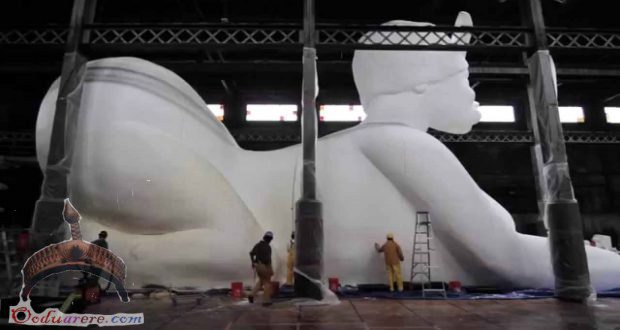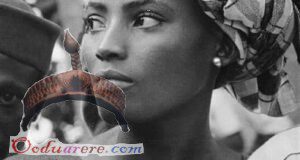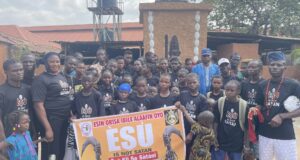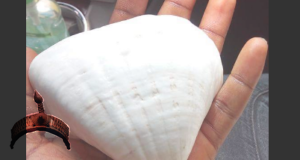Those familiar with the Oyo-speaking parts of Yoruba country would notice that these folks refer to sugar as Iyọ̀ọ-Ṣúgà.
If they were strangers, it might confound them, because they would translate Iyọ̀ as salt, and wouldn’t understand why it is coupled with Ṣúgà, that is sugar.
When folks say Iyọ̀ọ-Ṣúgà in those parts of Africa, they are not referring to salt in any way. They are simply describing the sweetness of sugar.
Sugar was not known in that part of the world until it was introduced by Europeans.
Ìrèké, or sugarcane, was available, but it was not processed into sugar; rather it was eaten raw as a wẹ́wẹ̀ or snack, and folks chewed it also to clean and massage the teeth to invigorate and strengthen the dentition.
Ìrèké grows wild in riverine places, swamps, and wherever the plant could find an abundance of water.
Ireke means an item or something that is desirable to cut and chew.
Ì+rè+ké= item+desirable+cut/chew.
The conversion of sugarcane (ireke) to sugar in India occurred many hundreds of years ago, but it was a rare item enjoyed in small amounts because it was expensive to produce.
When Europeans mechanized the production of sugar, they rendered it more widely and readily available globally in massive quantities.
Africans south of the Sahara did not immediately accept the commodity as food, using it mainly medicinally in tiny doses to sweeten the food of sick persons who had no appetite.
Until this time, Yoruba people ate Àgbáyun, a tiny seed that is immensely sweet, and which grows in the wild.
Adults often didn’t eat àgbáyun, but kids on the way to the farms would pluck and eat the seeds when the plant is in season.
Typically, until recently, Yoruba adults preferred the bitter taste to the sweet, and chewed-on orógbo (bitter kola) and obì (kolanut). These are very bitter nuts.
Ewúro (bitter leaf) was used as a chewing stick, and also added to ègúsí to thicken the dish as vegetable soup.
In the sixties, sugar became more widely available and was manufactured in Yoruba country in Ibadan and Lagos (TATE SUGAR and ST. LOUIS SUGAR).
Younger people quickly embraced the sweetness of sugar.
By the seventies, sugar was becoming an epidemic craving in Yoruba country.
Nowadays it is common for Africans to add sugar to everything they eat, including boiled yams, eggs, beans, and cassava products (such as gaàrí and ẹ̀bà).
Products loaded with sugar are now standard items on the shelves of stores, even in the remote parts of Africa.
The consequences of eating too much sugar are devastating in Africa: diabetes, regarded as ìtọ̀ ṣúgà (sugar pee) is ravaging the continent.
Diabetic amputations are daily conducted in surgical theaters at hospitals all over Africa.
It was a disease previously unknown in this part of the world.
If I can save only one person who reads this message from developing diabetes, my job is done.
Read all labels on the grocery shelves to see if they contain sugar, and check the quantity of sugar in the product.
Avoid items loaded with sugar.
Sugar is a drug that gives you an instant high.
It is even more addictive than alcohol, and once one develops a taste for it, you are hooked like an opium addict.
Please consume sugar medicinally.
It can destroy an entire community when dumped on unsuspecting consumers attracted by its sweetness.
The photo shows a large sculpture built with sugar by artist Kara Walker.
It is titled A SUBTLETY: THE MARVELOUS SUGAR BABY
 Ọmọ Oòduà Naija Gist | News From Nigeria | Entertainment gist Nigeria|Networking|News.. Visit for Nigeria breaking news , Nigerian Movies , Naija music , Jobs In Nigeria , Naija News , Nollywood, Gist and more
Ọmọ Oòduà Naija Gist | News From Nigeria | Entertainment gist Nigeria|Networking|News.. Visit for Nigeria breaking news , Nigerian Movies , Naija music , Jobs In Nigeria , Naija News , Nollywood, Gist and more









